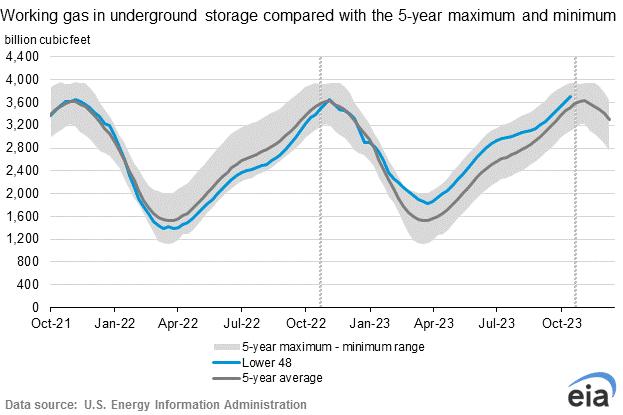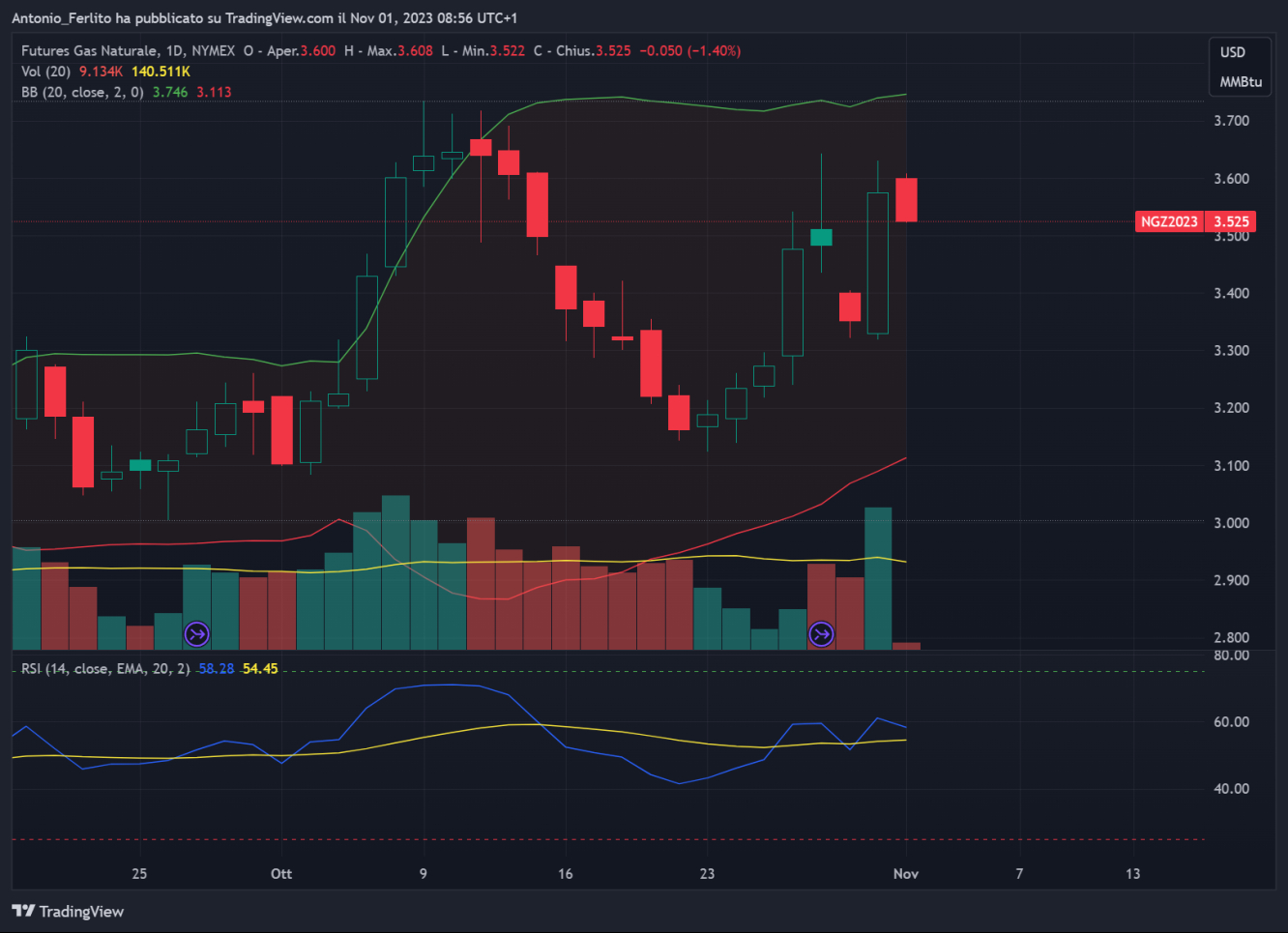Are new annual lows expected for gas prices?
U.S. natural gas futures prices fell below $3.5/MMBtu after reaching a two-week high of $3.64/MMBtu on Oct. 27.
According to the latest EIA data, inventories stand at 74 billion cubic feet, a figure well above the five-year average. In addition, average U.S. production hit a new record with 104.0 billion cubic feet.
But what was the reason for last week's uptick?
A new weather forecast indicates that there will be significant cold weather in the United States in November, thus increasing demand for gas for home heating.
It is not uncommon to see erroneous weather forecasts, and besides, both Europe and the United States have large natural gas reserves.
This is one of the main reasons for my pessimistic stance on gas.
Studying the futures curve, we notice a strong upward shift.
This indicates that there is a significant contango effect, which makes any long-term gas purchase transaction negative.
It is important to remind investors that there is a viable alternative to trading natural gas futures.
If you are considering investing in the gas sector, there are options that are easier to understand than futures.
You can consider buying shares in companies involved in gas production and distribution, which offer improved returns and are a safer option than the futures market.
One major company you can turn to is Antero Resources (NYSE:AR) Corporation, an independent leader in the development, production, and exploration of natural gas, natural gas liquids (NGLs), and oil in the Appalachian basins.
Their three main areas of operation are focused on the exploration, development, and production of these fossil fuels.
In technical terms, the current situation can be a trap for shoppers.
As many know, I am opposed to an approach based solely on technical analysis.
The decline in gas prices has been accompanied by a sharp drop in trading (-95.38 percent).
However, this brief movement is not supported by trading volumes, which are needed to confirm a further decline.
As a result, investors using technical analysis do not seem concerned.
Technical analysts agree that the situation remains bullish.
In addition, the close above the fast and slow-moving averages provides further confirmation of the positive short-term trend.
At this time, I disagree with the technical analysts.
If you want to invest in gas in the medium term, you should accumulate bearish positions as I am doing.
The main reasons behind this decision are record production and forecasts for warmer-than-normal weather, which could lead to lower prices as happened last year.
Seasonality usually affects natural gas prices, and last year we saw a significant reduction during the last quarter of 2022 and the first quarter of 2023.
Personally, I expect this trend to continue.
In addition, it is important to constantly monitor the natural gas stock data published every Thursday by the EIA to get a more accurate understanding of the situation.
According to my forecast, we could expect to see new lows in the coming quarters for natural gas prices.
